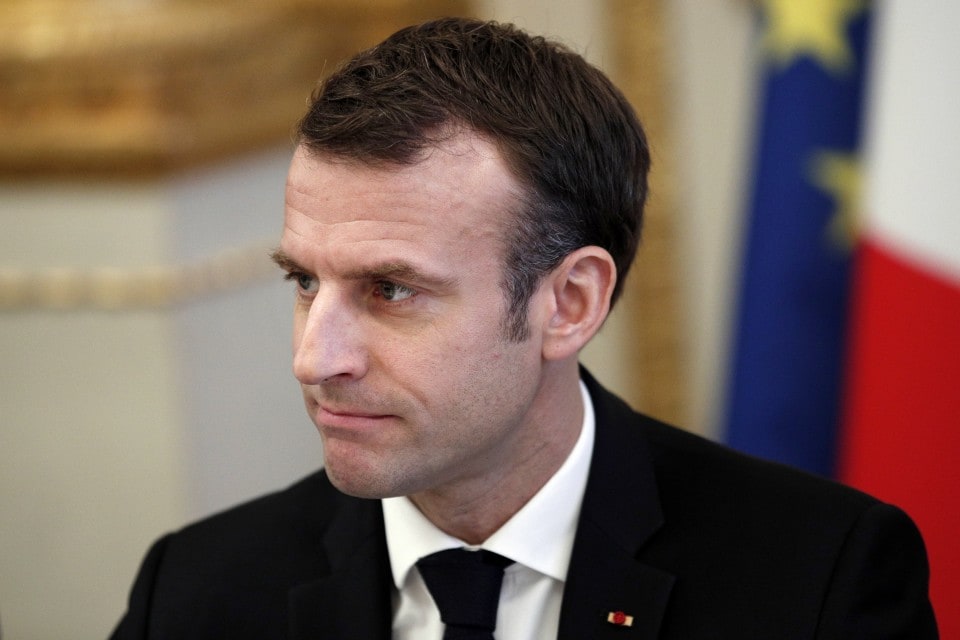Ivan Krastev is chairman of the Centre for Liberal Strategies in Sofia and the 2018-2019 Henry A. Kissinger Chair in Foreign Policy and International Relations at the Library of Congress John W. Kluge Center.
SOFIA, Bulgaria — It is a “force majeure” moment in Europe. In France, the “yellow vest” protesters are burning cars and destroying shops, accusing President Emmanuel Macron, the darling of the pro-European progressives, of Marie Antoinette-style arrogance and disrespect for the concerns of the ordinary people. In the United Kingdom, the utter failure to broker a Brexit deal has turned into a national tragedy. Several days ago, in an open letter to his compatriots, Dutch Prime Minister Mark Rutte concluded that Britain had “dropped the vase,” shattering the country’s delicate unity. He compared politicians who stir up divisions to “screaming sideline football dads” shouting loudly without thinking about the consequences of what they say.
Why meritocratic leaders like Macron are so resented, at a time when the world’s challenges require their expertise more than ever, is a question that has bothered me for quite some time. But that question leads to another: Why have the populists, elected on a wave of anti-elite anger, also failed to regain the people’s trust in politics? Their nationalist agendas having succeeded only in polarizing their societies.
As Macron explained in November at the centennial celebration marking the end of World War I, the soldiers who defended France’s “universal values” a hundred years ago were also casting aside the “selfishness of nations only looking after their own interests. Because patriotism is exactly the opposite of nationalism.” But it is precisely this “selfishness” that explains the failure of the elites at not only containing nationalism but also at demonstrating an alternative — at proving their “patriotism.”
“Force majeure” is a legal concept that allows you to get out of a contractual obligation under exceptional circumstances. It is also the name of Ruben Ostlund’s 2014 film, a black comedy about a professional couple who take their two beautiful young children to an upscale ski resort somewhere in the French Alps and face an unexpected “trauma” that permanently alters their relationship. Everything is going perfectly until the family, while enjoying some sunshine at an open-air mountain restaurant, sees an avalanche descending toward them. A tidal wave of snow envelopes the restaurant. And without thinking, the father flees, abandoning his family to save himself. When the snow settles, everyone realizes that it was a false alarm — it was a “controlled avalanche” gone slightly awry. No one is hurt. The father returns, and behaves as if nothing significant had happened, but the mother is livid. The rest of their trip is soured by the father’s moment of instinctual selfishness and his refusal to admit fault.
Ostlund’s film is a perfect analogy for why the meritocratic elites have lost the trust of the people. The collapse of Lehman Brothers was the world’s “controlled avalanche,” and the best and the brightest ran away — and quick — to save their money and banks, forgetting about those who needed their help. They have never ceased to deny that they have done so. And thus, not surprisingly, the majority of the people have come to regard the meritocratic elite as a mercenary elite, always ready to run from the table. They lack the word “sacrifice” in their vocabulary. They do not belong to the community, but they want to be respected, admired and even loved.
The populists on the other side offer no real alternative, nor are they egalitarian. Their appeal lies in their promise to renationalize the elites and to therefore tie them to the table. But what populists have really achieved is polarizing nations and making them ungovernable. The republic of citizens has turned into a republic of fans where their only civic duty is to support their team — and hate all others.
Adoring fans, not critically-minded citizens, are central to the way populism has transformed our democracies. Citizens are devoted to their country, but their loyalty is contingent and critical. Indeed, their readiness to criticize and correct mistakes in government is a sign of their patriotism. Citizens are ready to challenge their government if they believe that it is betraying their country’s principles. The loyalty of fans, by contrast, is dogmatic, arrogant, aggressive and uncritical. Their cheers reflect their sense of belonging. Critical reflection is replaced by adoration. Those who refuse to cheer are classified as potential traitors. Populist parties succeed to represent a part of society at the cost of ignoring the other part of society. Populist parties feel no obligation to represent people who do not like them, even if they are citizens of the same country. They do not have the word “compromise” in their vocabulary.
So who do the people trust, then, if they disdain the meritocrats and disregard the populists? The answer, based on opinion polls, is a profoundly puzzling one: Today, the military turns out to be the most trusted institution in most European countries. It is likely not because of any recent glorious victories nor because Europeans love war. Most probably, the public’s trust in the military elites could be explained by the fact that they are the only ones who do not have a “force majeure” clause in their contracts. For the military to serve, it must sacrifice for others. This is exactly what people expect the elites to do.
If leaders like Macron wish to counter the divisive strain of nationalism that grips their nations with their own brand of “patriotism,” they must recapture the public’s trust. And to do so, they must tie their own hands to the table to prove that when the next avalanche hits, they will not flee.
This was produced by The WorldPost, a partnership of the Berggruen Institute and The Washington Post.





